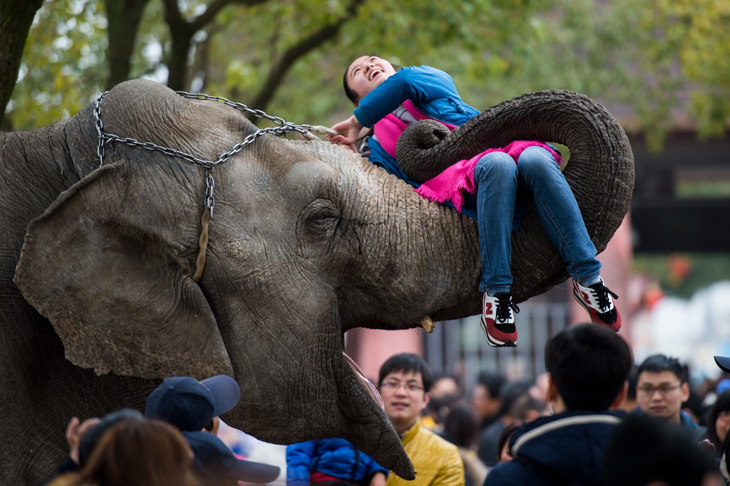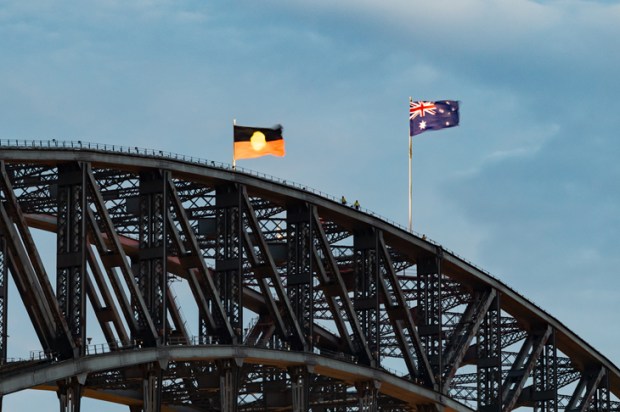One of the advantages of being an internet sensation is that it greatly reduces the likelihood of you being eaten. To put it another way, as long as you and your family are being stalked 24/7 by live-streaming news network drones, it’s highly unlikely that anybody will dare to shoot you, skin you, chop you into bite-sized pieces and serve you up to their friends with seasonal greens and a cheeky riesling. This is true even if you happen to find yourself in a country where there is no legal statute discouraging such catering practices, and where rats, bats, birds’ nests, and jellyfish are already consumed on a daily basis by half the population. Under normal circumstances you might forgive such dedicated omnivores for at least wanting to know what you taste like, much as you yourself might be keen to sample the new herb-infused chèvre which has suddenly appeared on the shelves of your local deli. But it’s reasonable to assume they’ll consider you to be off culinary limits as long as their children are following the activities of your children on their smartphones. And even if those activities have left a trail of infrastructure destruction costing millions of dollars, as long as the footage of it is breaking Instagram and Facebook ‘like’ records, even their police force will probably hesitate to intervene with the same vigour they might apply to the breaking up of a prayer meeting or protest march. It helps, of course, that elephants – especially baby elephants – are easier to anthropomorphize than rats, bats, and jellyfish. And also, that the Asian elephant is an endangered species in China (although the same classification has not, to any measurable degree, diminished the local appetite for tiger penises). But if 15 feral elephants had trampled just one paddy field and pushed over just one fence in Yunnan province twenty or even ten years ago, can anybody seriously doubt that their ears and trunks would have appeared on the menu of some upmarket Beijing brasserie a few days later, and their tusks turned into billiard balls.
Australia, as Cameron Stewart reminded us in the national broadsheet of record last weekend, has its own pachyderm problem, and while numerically smaller than China’s it is one which has already cost taxpayers many more millions of dollars and seems likely to continue doing so for decades to come. According to my dictionary, a white elephant is ‘a possession that is useless or troublesome, especially one that is expensive to maintain or difficult to dispose of’. With the possible exception of the British royal family, I doubt the world has ever seen anything which matches this description more perfectly than the fleet of 12 Attack-class submarines which the Turnbull government contracted a French company to build in 2016 and which, according to Cameron Stewart, are still at least 20 years away from being fully operational. As $90b is by some distance the largest item of defence expenditure in our nation’s history, you would assume the government only committed to it after exhaustive cost-benefit analysis. But then you remember that this was the same prime minister who made a $60m ex-gratia tax-payer-funded donation to a group of climate alarmists called The Great Barrier Reef Foundation without so much as a word of explanation to parliament or the public. While Josh Frydenberg’s worrying approval of his previous boss’s Flannerist largesse is a matter of public record, it is less certain if Peter Dutton, who was Federal immigration minister in 2016, supported the submarine project. But it falls to him now as Defence Minister to post-rationalise the Turnbull administration’s insistence that, notwithstanding Australia’s huge uranium deposits, the nuclear propulsion systems which come as standard on these fearsome machines should be replaced by much slower, needier diesel engines. Given that the submarine fleets of most of our allies and enemies are now predominantly nuclear-powered, this would seem to raise questions about the ability of our customised Attack-class subs to deter enemy incursion even if they were in the water today, let alone to ‘protect our security and prosperity for decades to come’, as it says on the relevant federal government website. It’s not just the phrase ‘white elephant’ which springs irresistibly to mind when discussing our naval capabilities these days. As tensions with an increasingly belligerent, well-armed and expansionist China continue to mount it is also the words ‘knife’ and ‘gunfight’.
Got something to add? Join the discussion and comment below.
Get 10 issues for just $10
Subscribe to The Spectator Australia today for the next 10 magazine issues, plus full online access, for just $10.
You might disagree with half of it, but you’ll enjoy reading all of it. Try your first month for free, then just $2 a week for the remainder of your first year.















Comments
Don't miss out
Join the conversation with other Spectator Australia readers. Subscribe to leave a comment.
SUBSCRIBEAlready a subscriber? Log in